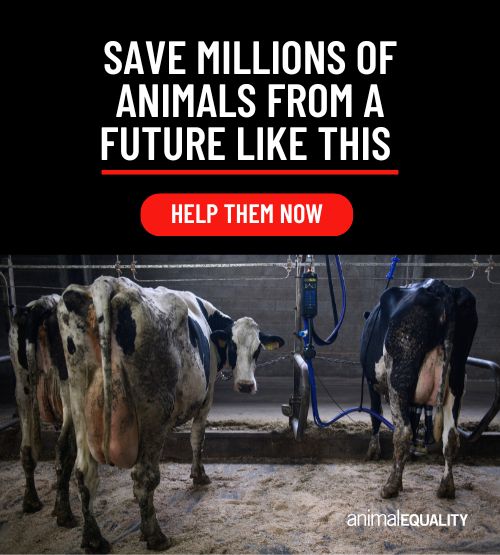Commitment or Cover-Up? How much longer do animals have to suffer?
Denny’s says it’s taking steps toward better animal welfare. We don’t buy it.
Denny’s promised in 2012 to stop purchasing from farms that cage pregnant mother pigs. However, the company has made little progress in the last 12 years. Now it claims it will make progress by 2030.
During Denny’s annual stockholders meeting in May, CEO Kelli Valade and the Board of Directors rejected a shareholder proposal that asked the company to phase out the use of cruel gestation cages. Now, Denny’s still refuses to state that it will publicly report a percentage each year–as most companies do–to transparently show that the progress it’s making is real.
Tell Denny’s to make a strong commitment against cages
Kelli Valade and Denny’s know this is wrong.
In gestation crates, pigs cannot walk, turn around, or even stand comfortably. The practice is already illegal or restricted in 11 U.S. states, the European Union, Australia, New Zealand, the U.K., and Sweden. It is also being phased out in Canada and Brazil.
Dozens of major companies are eliminating the use of gestation crates. It’s time for CEO, Kelli Valade, and Denny’s to show the public they can be trusted and commit to publicly reporting percentages of progress away from cages for pigs.
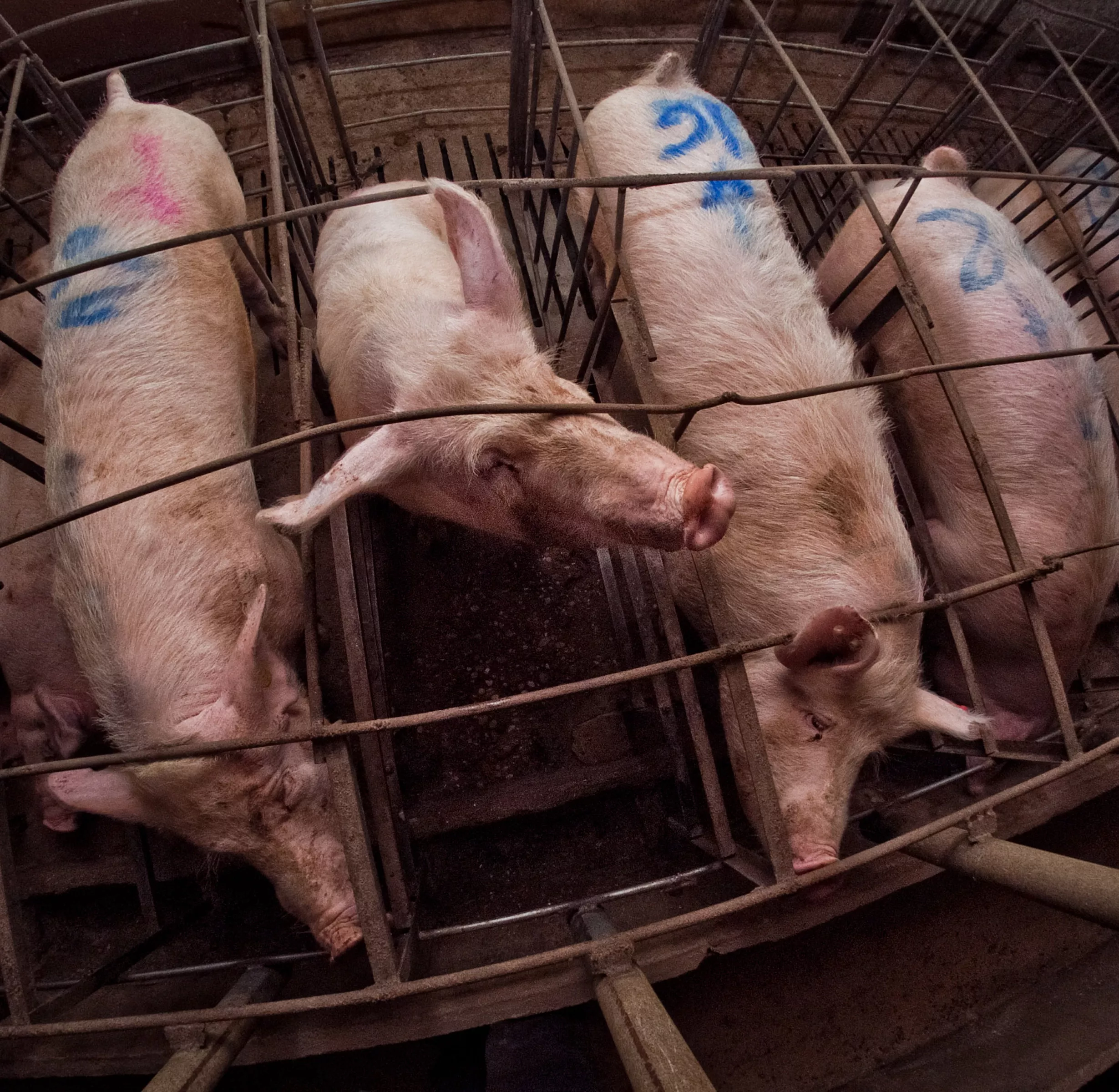
6 million pigs are in gestation crates
In U.S. pig factory farms, most of the 6 million female pigs are confined in a gestation cage for nearly four months during their pregnancy.
After they give birth and their piglets are weaned and taken away from them, they are forced into these crates again to repeat the painful cycle.
Cruelest forms of confinement
These 7-by-2-foot crates take a large physical and mental toll on the animals. Pigs cannot walk, turn around, or even stand comfortably in these crates. Beneath them are hard floors with slats for the urine and feces to fall through before collecting in giant outdoor waste lagoons.
Professor Ian Duncan, a scholar of animal welfare at the University of Guelph, has described it as “one of the cruelest forms of confinement devised by humankind.”
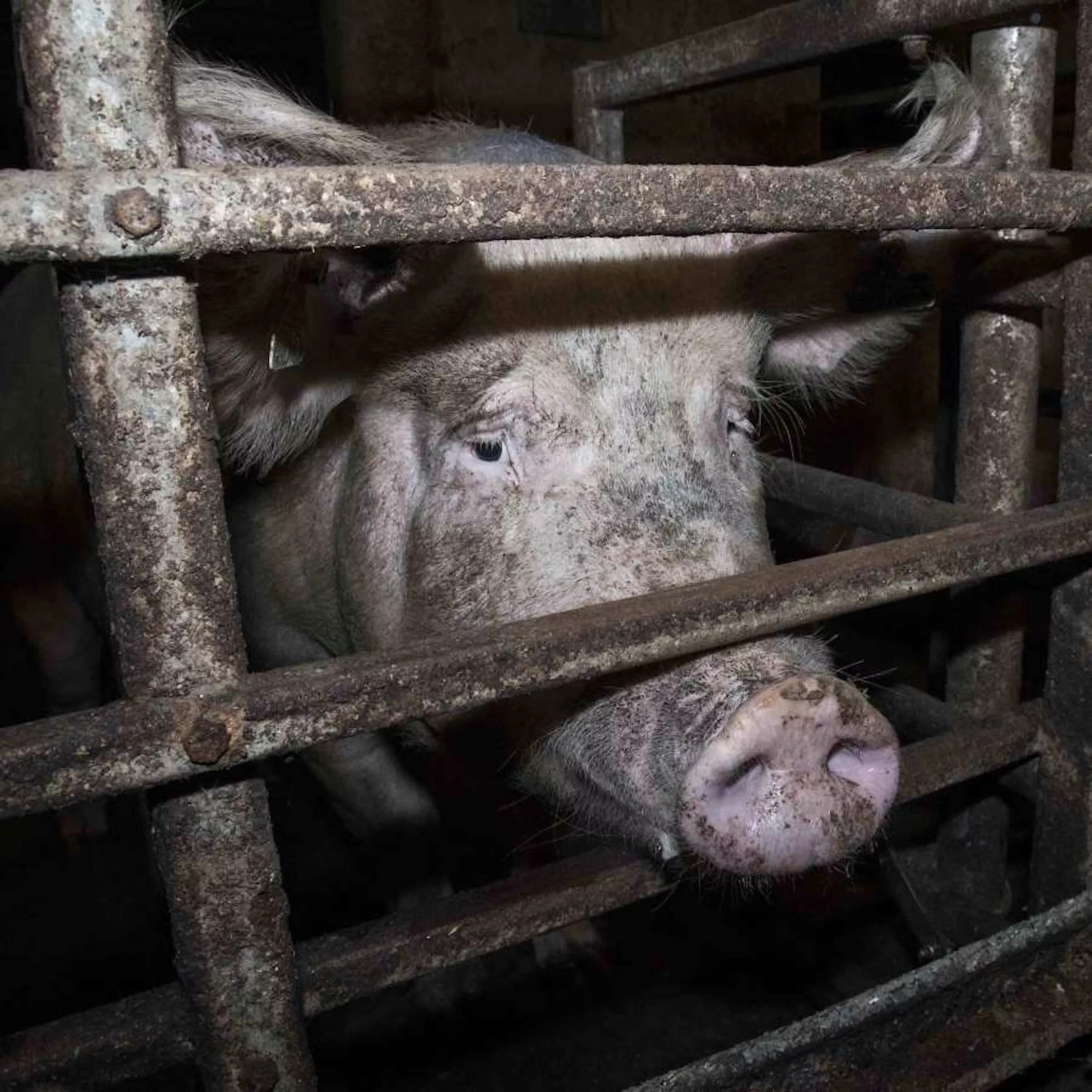
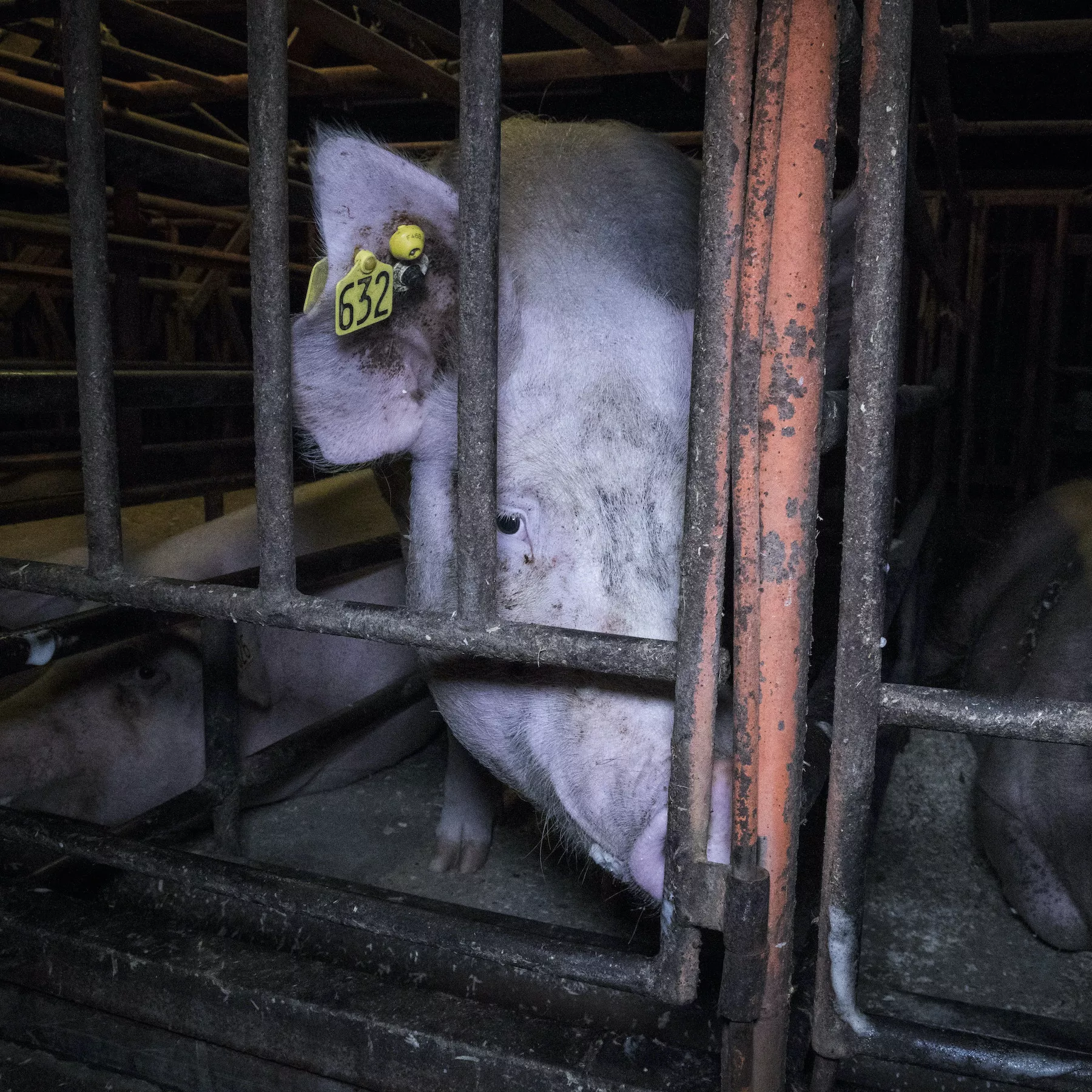
Pigs can’t even turn around
Scientific research shows that living crammed in a gestation cage causes physical and psychological suffering to pigs.
This includes lameness due to weak bones and muscles, abrasion injuries, cardiovascular problems, overgrown hooves, digestive problems, and urinary tract problems.
These companies have committed to banning cages for mother pigs












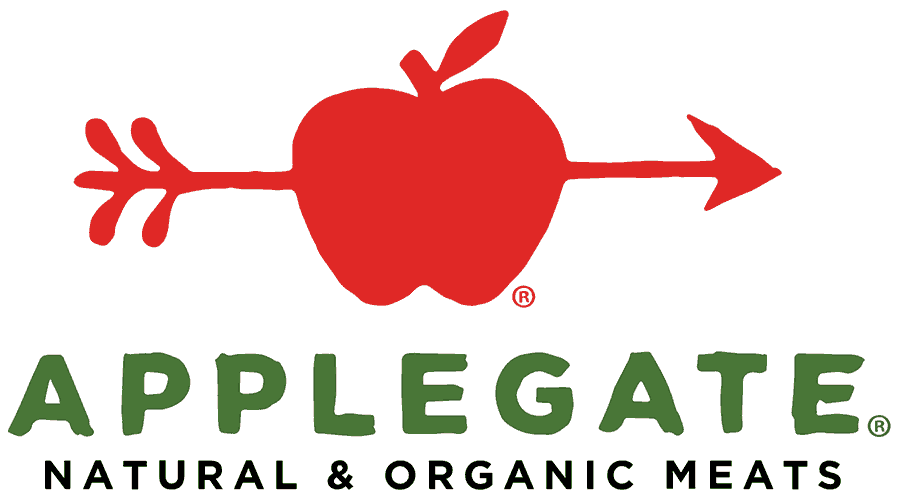


Experts agree:
Mother pigs suffer in crates

Gestation crates for pigs are a real problem…
Temple Grandin
Basically, you’re asking a sow to live in an airline seat…
I think it’s something that needs to be phased out.

[T]he close confinement of sows in stalls or tethers is one of the most extreme examples of cruelty to an animal. It continues throughout much of life and is much worse than severely beating an animal or most laboratory experiments.
Donald M. Broom

Confinement of sows during pregnancy, especially in individual stalls or on tethers, can be cold, uncomfortable and injurious, and imposes severe restrictions on natural behaviour.
John Webster
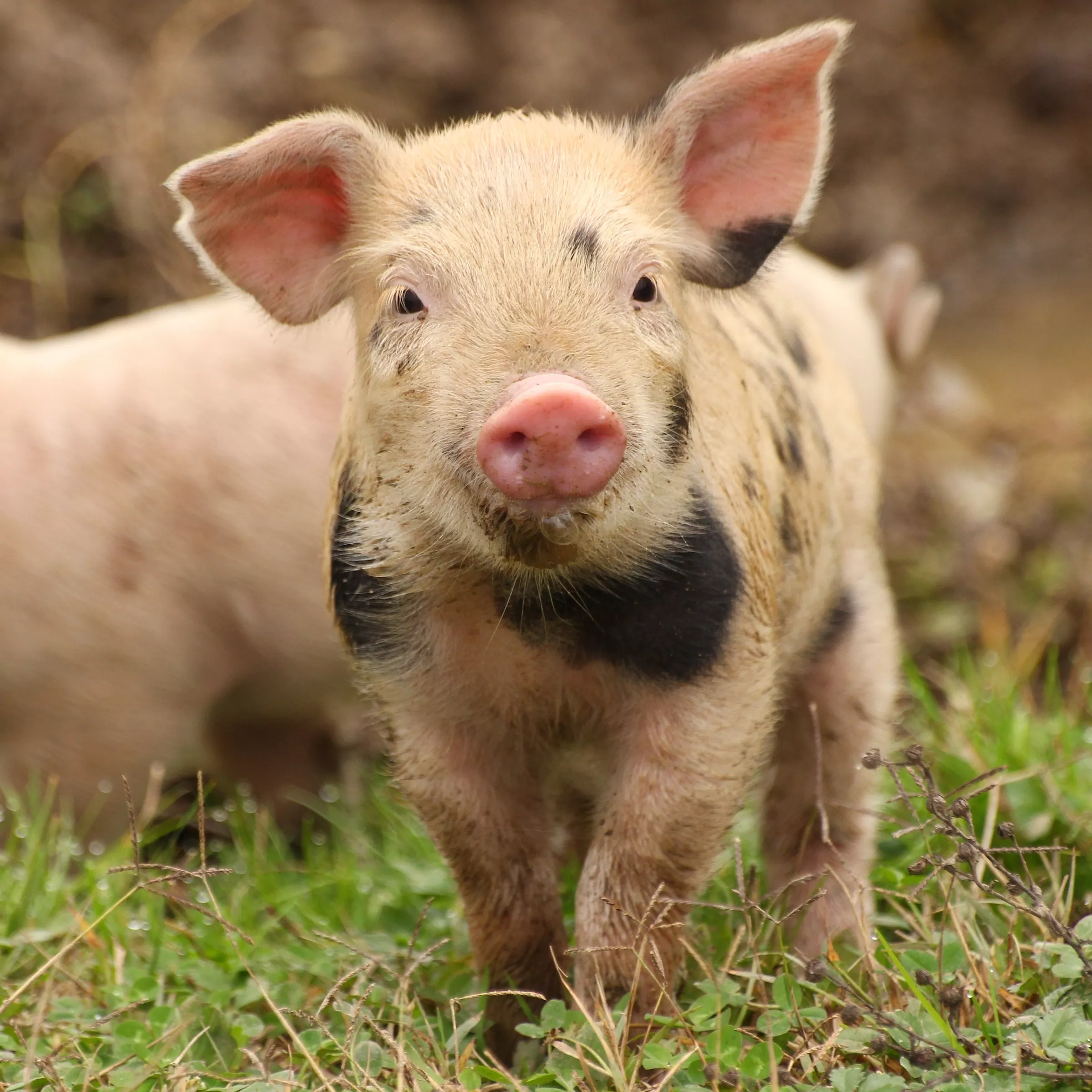
Spare animals by eating plant-based
There is no easier way to help animals and prevent suffering than by choosing plant-based foods over meat, fish, eggs, and dairy.
Visit LoveVeg.com for tips and recipes.
These images are representative of farms that use gestation crates.

